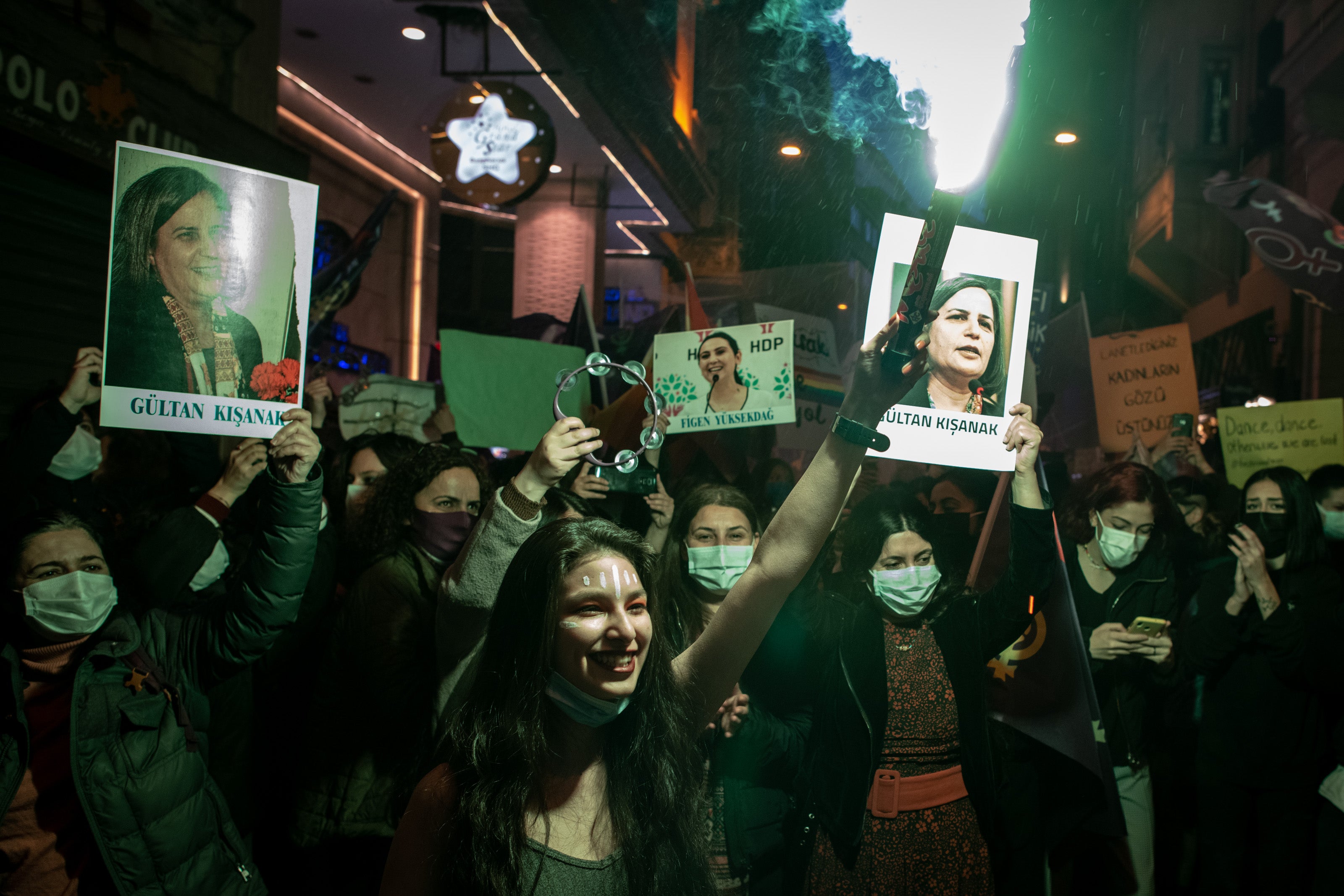Turkey pulls out of international treaty on violence against women
Some 77 women killed in first 78 days of this year

Your support helps us to tell the story
From reproductive rights to climate change to Big Tech, The Independent is on the ground when the story is developing. Whether it's investigating the financials of Elon Musk's pro-Trump PAC or producing our latest documentary, 'The A Word', which shines a light on the American women fighting for reproductive rights, we know how important it is to parse out the facts from the messaging.
At such a critical moment in US history, we need reporters on the ground. Your donation allows us to keep sending journalists to speak to both sides of the story.
The Independent is trusted by Americans across the entire political spectrum. And unlike many other quality news outlets, we choose not to lock Americans out of our reporting and analysis with paywalls. We believe quality journalism should be available to everyone, paid for by those who can afford it.
Your support makes all the difference.Turkey has pulled out of a landmark European treaty aimed at protecting women from violence, despite rising domestic abuse and the country’s high femicide rate.
President Recep Tayyip Erdogan issued a decree early on Saturday morning annulling Turkey’s ratification of the Istanbul Convention, which is designed to promote equality and obliges state authorities to prevent violence against women, protect survivors and prosecute perpetrators.
Turkey was the first country to sign the Council of Europe accord in 2011 and the law came into force in 2014.
No reason was given for the withdrawal, but officials in the ruling AK Party said last year the government was considering pulling out amid a row over how to curb growing violence against women.
“The guarantee of women’s rights are the current regulations in our bylaws, primarily our constitution. Our judicial system is dynamic and strong enough to implement new regulations as needed,” Zehra Zumrut Selcuk, the family, labour and social policies minister, said on Twitter.
Critics of the withdrawal from the pact have said it would put Turkey further out of step with the values of the European Union, of which the country has been a candidate to join since 2005.
They argue the deal, and legislation approved in its wake, need to be implemented more stringently.
Read more
Violence against and the killing of women is on the rise in Turkey, according to rights groups.
Some 38 per cent of women in Turkey are subject to violence from a partner in their lifetime, compared with about 25 per cent in Europe, World Health Organisation data has shown.
Turkey does not keep official statistics on femicide, but 77 women have been killed since the start of 2021 and at least 409 were killed in 2020, according to the We Will Stop Femicide Platform.
The murder of a 27-year-old woman by an ex-boyfriend sparked outrage in the country in 2020.
Street protests and vigils were held after the remains of Pınar Gültekin were discovered in woodland in the southwestern city of Mugla last July, and hundreds of thousands of people shared the hashtags #ChallengeAccepted #İstanbulSözleşmesiYaşatır (Istanbul Convention Saves Lives) on social media.
Mr Erdogan said this month his government would work to eradicate violence against women.
Measures taken by Ankara include tagging individuals known to resort to violence and creating a smartphone app for women to alert police, which has been downloaded hundreds of thousands of times.
But critics say the government has not done enough to prevent femicide and domestic violence.
Conservatives in Turkey claim the Istanbul Convention undermines family structures, and some are hostile to the principle of gender equality as they see it as promoting homosexuality, given its principle of non-discrimination on grounds of sexual orientation.
But Turkey is not the first country to move towards ditching the accord.
Poland’s highest court scrutinised the pact after a cabinet member said Warsaw should quit the treaty since the nationalist government considers too liberal.
Join our commenting forum
Join thought-provoking conversations, follow other Independent readers and see their replies
Comments